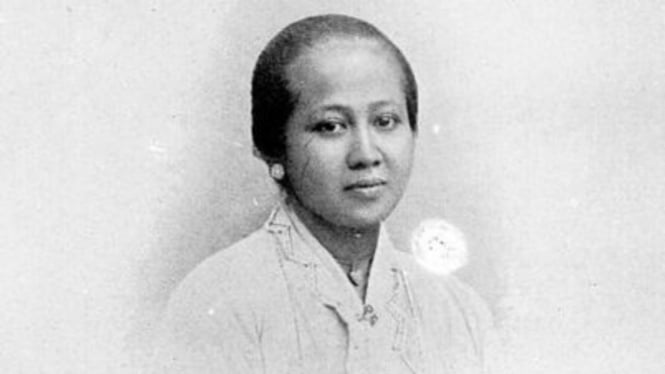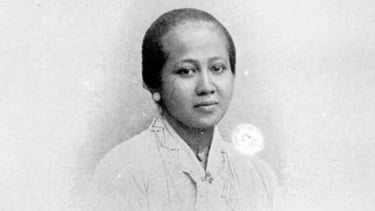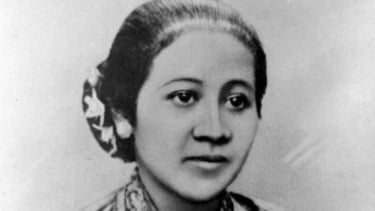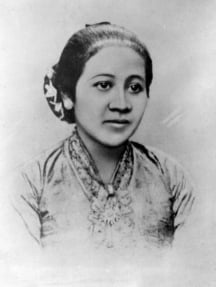8 Interesting Facts about Kartini's Letters
- Tropenmuseum
Jakarta – Kartini Day, celebrated annually on April 21st in Indonesia, honors the legacy of Raden Adjeng Kartini, a well-known figure in the country's history.
Kartini is famous as a pioneer for women's rights and education in the early 20th century advocating for the empowerment of women in a time when traditional norms often restricted their opportunities.
Kartini's figure cannot be separated from a work entitled Door Duisternis tot Licht or Out of Dark Comes Light which is a collection of letters written by Kartini. It was published in 1911.
It went through five editions, with some additional letters included in the final edition, and was translated into English by Agnes L. Symmers and published under the title Letters of a Javanese Princess.
So, here are several facts about theOut of Dark Comes Light letter by Kartini, as quoted from various sources.
1. Containing the letters of R.A. Kartini
After Kartini's passing, Jacques Abendanon collected and compiled the letters she had sent to her friends in Europe. At that time, Abendanon served as the Minister of Culture, Religion, and Crafts of the Dutch East Indies.
The book was titled "Door Duisternis tot Licht” which literally means "Out of Dark Comes Light". This collection of Kartini's letters was published in 1911. The book went through five printings, with the final edition containing additional letters from Kartini.
2. Only containing 87 letters from R.A. Kartini
Kartini's letters were known to have been translated into Javanese and Sundanese. Armijn Pane presented Kartini's letters in a different format from previous books.
He divided the collection of letters into five discussion chapters. This division was made to demonstrate the stages or changes in Kartini's attitudes and thoughts during her correspondence.
In this new version, Armijn Pane also reduced the number of Kartini's letters. Only 87 of Kartini's letters are included in Out of Darkness Comes Light.
The reason for not including all the letters found in the reference book "Door Duisternis Tot Licht" was due to similarities in some letters. Another reason was to maintain the narrative flow to resemble a novel.
3. Translated by Sulastin Sutrisno
Kartini's letters were also translated by Sulastin Sutrisno. Initially, Sulastin translated "Door Duisternis Tot Licht" at Leiden University, the Netherlands, while continuing her studies in literature in 1972.
Then, in 1979, a book containing Sulastin Sutrisno's complete translation of "Door Duisternis Tot Licht" was published.
Sulastin's collection of translated letters was titled "Surat-surat Kartini, Renungan Tentang dan Untuk Bangsa Jawa" ("Letters from Kartini, Reflections About and For the Javanese Nation").
He believed that despite being written in Javanese, what Kartini truly desired was the progress of the entire Indonesian nation. Sulastin's translation aimed to present all of Kartini's letters that existed in "Door Duisternis Tot Licht."
4. Translated by Joost Coté
RA Kartini.
- Tropenmuseum
Another book containing translations of Kartini's letters is "Letters from Kartini, An Indonesian Feminist 1900-1904" by Joost Coté. He not only translated the letters from "Door Duisternis Tot Licht" by Abendanon but also translated all of Kartini's original letters to Nyonya Abendanon-Mandri from the latest findings.
In Joost Coté's translated book, one can find sensitive letters that were not included in Abendanon's "Door Duisternis Tot Licht" version. According to Joost Coté, Kartini's struggles and obstacles needed to be revealed.
5. Content of R.A. Kartini's letters
Most of her letters contained complaints and grievances, especially regarding Javanese culture, which she viewed as hindering women's progress. She advocated for women to have the freedom to seek knowledge and education.
Additionally, Kartini's letters often revealed the obstacles she faced in aspiring to be a more progressive Javanese woman.
6. Inspiring W.R Supratman
ilustrasi R.A Kartini
- freepik by freepik
The publication of Kartini's letters, written by an indigenous woman, attracted the attention of Dutch society, and Kartini's thoughts began to change Dutch perceptions of indigenous women in Java.
Kartini's ideas, as expressed in her letters, also inspired figures of the Indonesian national awakening, such as W.R Supratman, who composed the song "Ibu Kita Kartini" (Our Mother Kartini). The song depicted the essence of women's struggle for independence.
7. Revealed Kartini's desire to study in Europe
In Kartini's letters, her desire to continue her studies, especially in Europe, was revealed. However, unfortunately, she canceled these plans. Her intention and plan to study in the Netherlands eventually shifted to study in Batavia after being advised by Mrs. Abendanon that it was best for Kartini and her sister Rukmini.
At 24, Raden Adjeng Kartini also intended to continue her studies to become a teacher in Batavia, but unfortunately, this plan was dashed when she had to get married.
Even though the Dutch education department had opened the opportunity for Kartini and Rukmini to study in Batavia, this was revealed in a letter she sent to Mrs. Abendanon.
8. Controversy of Kartini's letters
Some doubted the authenticity of Kartini's letters. This suspicion arose because some believed that J.H. Abendanon, the Minister of Culture, Religion, and Crafts at the time, had fabricated Kartini's letters.
The suspicion arose because Kartini's book was published during the Dutch colonial government's implementation of ethical politics in the Dutch East Indies, and Abendanon was involved and supported ethical politics.
To this day, most of the original manuscripts of Kartini's letters are unknown. According to Sulastin Sutrisno, it’s difficult to trace the descendants of J.H. Abendanon through the Dutch government.





































